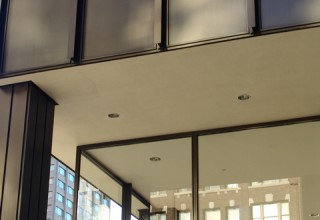Dual-Tracking Still Rampant in California Loan Modifications and Foreclosures
New foreclosure laws, including the Homeowner Bill of Rights, made "dual-tracking" illegal in California, however many lenders simply refuse to comply with the law and continue dual-tracking borrowers. Homeowners are fighting back with litigation.
Online, August 7, 2013 (Newswire.com) - Homeowners facing foreclosure in California now have additional options to keep their home, even if they have been turned down for a loan modification. With the new California "Homeowners Bill of Rights" and other wrongful foreclosure protections California offers, most struggling borrowers have the option of filing suit with a foreclosure attorney to avoid foreclosure and increase their chances of getting a loan modification.
Many lenders are declining to assist homeowners and modify mortgages despite the homeowner proving sufficient income to make a reasonable mortgage payment, choosing instead to simply foreclose. Furthermore, in many instances, lenders are simultaneously negotiating with the homeowner on a loan modification while also taking action to foreclose wrongfully. This conduct is typically unlawful and considered a wrongful foreclosure under the Homeowner Bill of Rights, it has come to be known as "dual-tracking." Dual Tracking is when the lender simultaneously evaluates and reviews the borrower for a loan modification, while at the same time taking action to advance the foreclosure of the property. In 2013 the California legislature made dual-tracking illegal under the Homeowners Bill of Rights.
"We are committed to litigating these dual-tracking issues for our clients whose lenders have simultaneously accepted and considered a loan modification request, while at the same time moving forward with foreclosure activities, such as the filing of a Notice of Default and/or Notice of Sale. In most situations, lenders don't even bother to formally decline the loan modification application, they just foreclosure wrongfully," foreclosure attorney Timothy McFarlin describes.
In many instances, lenders may lie to and "string-along" homeowners for months while they "consider" a loan modification request, while at the same time filing legal notices for foreclosure. This is the exact conduct the Homeowners Bill of Rights sought to avoid. It is terribly misleading and confusing for a borrower to be working diligently with the bank on the one hand, while at the same time, a foreclosure trustee is foreclosing behind the scenes. Homeowners often don't even find out they were "turned down" for a loan modification until before their foreclosure sale, or worse yet, after their home has already been foreclosed on. Most homeowners don't realize this conduct on the part of their lender is unlawful and they can certainly litigate the issue to attempt to save their home.
For homeowners who wish to keep their homes, action must be taken immediately upon the discovery of dual-tracking or the claims may be lost. The most likely chance of a successful loan modification is still mortgage litigation. Mortgage litigation involves a homeowner filing a lawsuit against their lender for misconduct in the loan modification process such as dual-tracking, breach of contract, unfair business practices and wrongful foreclosure. Frequently lenders do not treat homeowners fairly in the modification process and this forms the basis of a mortgage litigation suit.
Homeowners who feel they may have been the victim of dual-tracking should seek legal representation immediately. Foreclosure typically begins very quickly after an unsuccessful loan modification. To discuss your options with an experienced Real Estate and Foreclosure attorney, call McFarlin LLP for a free consultation today at (888) 728-0044, or visit us online at: www.mcfarlinlaw.com and read more about your rights.


